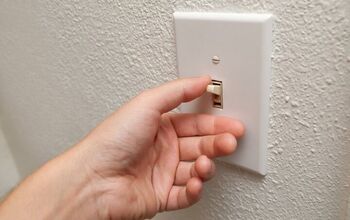Is Tupperware Dishwasher Safe? (Find Out Now!)

Tupperware containers are kitchen staples for every household. They make it easier for us to tow our lunch and store leftovers and keep them fresh. However, just like every reusable utensil in the kitchen, they needed to be cleaned every after use. This leaves everyone with one important question: is Tupperware dishwasher safe?
Most Tupperware products that were purchased after September 3, 1979, are dishwasher safe. The models that are NOT dishwasher safe are CheeSmart CondensControl™ Grid, Shape- O-Toy, TupperChef Knives, and any printed models and anything with a clear, glass-like finish.
How to Safely Wash Tupperware in the Dishwasher
You can easily tell if your Tupperware container is dishwasher safe if it says so on the label. This being said, it’s important to know how you can safely wash your products in the dishwasher.
Place your Tupperware products where it gets the least heating elements. It’s also best not to wash your container with high heat and dry settings. Exposing your Tupperware to extreme heat can warp or even melt them.
When this happens, it’s going to be difficult for you to put the lid on. Or worse, damage your dishwasher, which could make you end up having to install a new one.
It’s also smart not to place your containers on the lower part of the dishwasher. It’s not good to expose them to high-pressure jets as they can cause the containers to fall on the hotter part of the dishwasher.
You must also remember that dishwashers don’t dry plastics completely. This means that at the end of the cycle, you still need to towel dry the containers before storing them. Or you can just put an air gap on your dishwasher to let them dry for a few hours.
Another thing that irks many Tupperware owners about a dishwasher is that they leave white marks. These white marks are usually normal wear and tear.
However, they are likely more because of the constant use of the dishwasher. In order for the machine to clear its contents, the high-pressure jets perform forceful cleaning – this causes for the Tupperware to have white dent marks.
Not Because You Can, You Should
While you can wash your Tupperware containers on your dishwasher, it’s still better to wash them by hand. By washing them by hand, you can avoid the possibility of melting, wrapping, and causing them to be loose. If you want to keep the longevity of these products, then handwashing them is the better way to go.
A Nightmare for Your Dishwasher
Even though these food-safe plastics claim to be dishwasher safe, you don’t want to 100% rely on this. They usually are not heat resistant. This means they can melt under the high temperatures produced by the machine.
When this happens, some fragments of the plastic can chip off in the dishwasher. These fragments can block the filters, which leads to clogging. These clogging can cause your dishwasher to break.
Proper Way to Hand Wash Your Tupperware
Hand-washing your Tupperware containers shouldn’t be too complicated. However, they require more attention than your typical kitchenware.
- Rinse them with warm water. Warm water can wash away the grease from the food you last used your container with.
- Scrub the dirt away. Use a soaped sponge or cloth and scrub the container and lid. Make sure that you remove all the food stains.
- Rinse and dry. After washing your containers, rinse them again with warm water. You can either put them on the rack and air-dry them or use a clean cloth.
Tip: Try not to use abrasive sponges when washing your Tupperware containers. They can scratch the surface of your containers. These scratches can cause food particles to get stuck, which is a good place for bacteria to live and grow.
How to Get Rid of Stubborn Stains from Your Tupperware
Some stains are just stubborn and will not come off. Curry and red sauces are notorious for leaving stains on Tupperware. But don’t worry, we’re giving you effective solutions to that.
In order to prevent stubborn stains to stay on your Tupperware, follow this simple method: Spray some non-stick out before putting curry or sauces in the container. You can also use any oil in your pantry – you may want to use a pastry brush to spread the oil easier.
This works because the thin layer of oil helps prevent the sauces from sticking on the surface of the containers.
How to Get Rid of Strong Smell on Tupperware
There are several ways for you to get rid of the undesirable smell out of your lovely Tupperware containers. Here are the methods you may want to try.
- Get some newspaper and wet it with water. Put inside the container and close the lids. Leave it overnight. The smell will be absorbed by the carbon in the newspaper print.
- Get some pandanus leaves and shred them. Put them in the container, close, and leave overnight.
- Wash the container using lemon or lime. This will not only get rid of the smell but will also leave citrus fragrant.
- Rinse the container with vinegar. After washing the containers and you notice that the unwanted smell is still there, fill them with white vinegar, white water, and dishwashing soap. Allow the water mixture for about 3 minutes. Pour out the vinegar and wash again using a soaped sponge.
- Use the magic of baking soda. Baking soda is one of the most reliable partners in getting rid of unwanted smells in Tupperware. Its cleansing properties work as stain and odor remover. Just mix some baking soda with a small amount of water to make a paste-like consistency. Rub the mixture all the surface of the container and let it sit overnight. Rinse the next morning and enjoy your odor-free container.
How to Get Rid of Remove Grease on Tupperware
Grease is another strong enemy of most Tupperware owners. Sometimes, no matter how much you scrub them with a soaped sponge, they just don’t go away! Here’s how you can solve this dilemma.
- Prepare soak basin. Get a small tub and place it in the sink or put a stopper on the drain. Fill it with warm water.
- Add dishwashing liquid. Squirt a few drops of dishwashing liquid onto the water. Immerse the greasy container in the water and let it soak for a few minutes.
- Wash as usual. Wash your container as you would with your other kitchenware.
How to Store Your Tupperware Properly
There’s so much to love about Tupperware containers. That’s why it’s important to learn how to care about them. And while these containers are not high-maintenance, it’s still going to help you even lengthen their life by following more of these tips below:
- Never close the lids. When storing your Tupperware, it’s best to stack the lids and bases separately. This will help you save so much space and makes organization easier.
- Store them with newspaper overnight. As mentioned earlier, the carbon in the newspaper can eliminate the unwanted smell from the container. When storing your Tupperware in a closed cabinet, you may want to place some newspaper pages along with the stack. You can leave the newspaper overnight and remove it the next morning.
- Store them according to sizes. Collect all the lids and bases and lay them out somewhere in your kitchen. Make sure to match lids and bases according to their sizes for better organization.
- Make sure it’s completely dry. A little dampness can cause the Tupperware to have the unwanted smell, especially if you are placing them inside a closed cabinet. So, before storage, make sure they are completely dried by wiping clean cloth.
Bonus tip: Some Tupperware owners swear by this method, and we don’t see why you shouldn’t try it. After using your containers for three months or so, give them an overnight soak in the water. The next morning, air-dry or cloth-dry them before storing them back.
There is a simple explanation as to why many do this method. Tupperware is made out of biodegradable oil that requires moisture. This process is supposed to give that moisture.
Are All Tupperware BPA Free?
There’s no official statement as to whether or not ALL Tupperware products don’t contain BPA. However, on their official website, Tupperware says that all their products sold by Tupperware US & CA since March of 2010 are BPA-free.

Coming from a family of woodcarvers, Cyril has always been fascinated with wooden interiors and home decorating. While she followed the path of writing as her career, her interests in home improvements still remain.
More by Cyril Balahadia



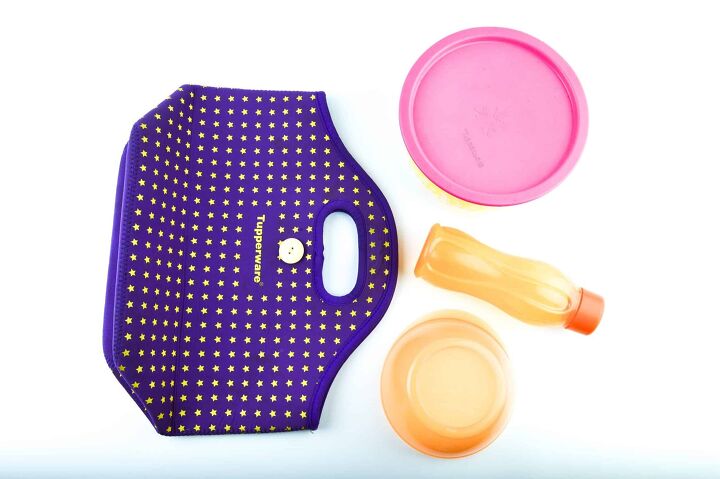






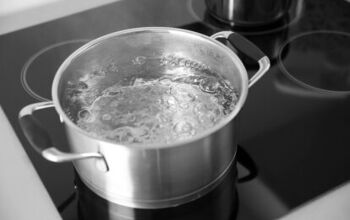
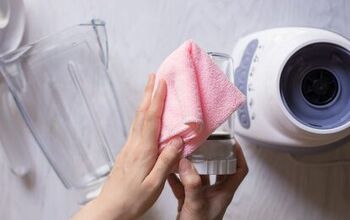
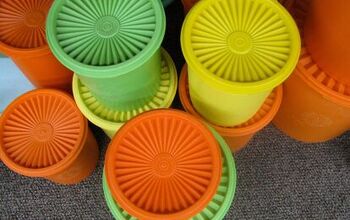
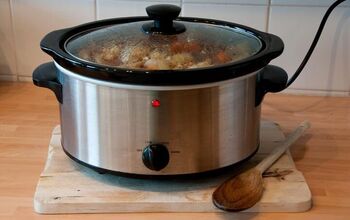
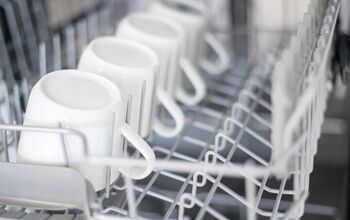

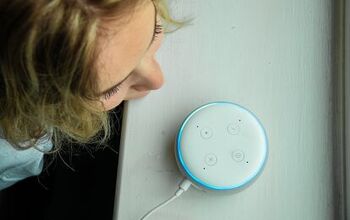





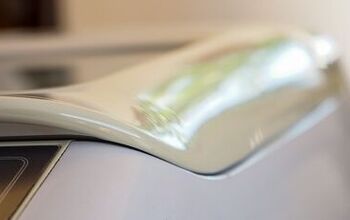
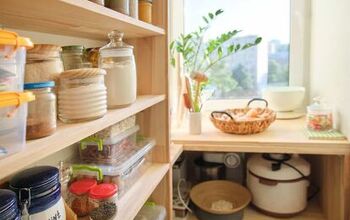

![Cost To Drill A Well [Pricing Per Foot & Cost By State]](https://cdn-fastly.upgradedhome.com/media/2023/07/31/9074980/cost-to-drill-a-well-pricing-per-foot-cost-by-state.jpg?size=350x220)

